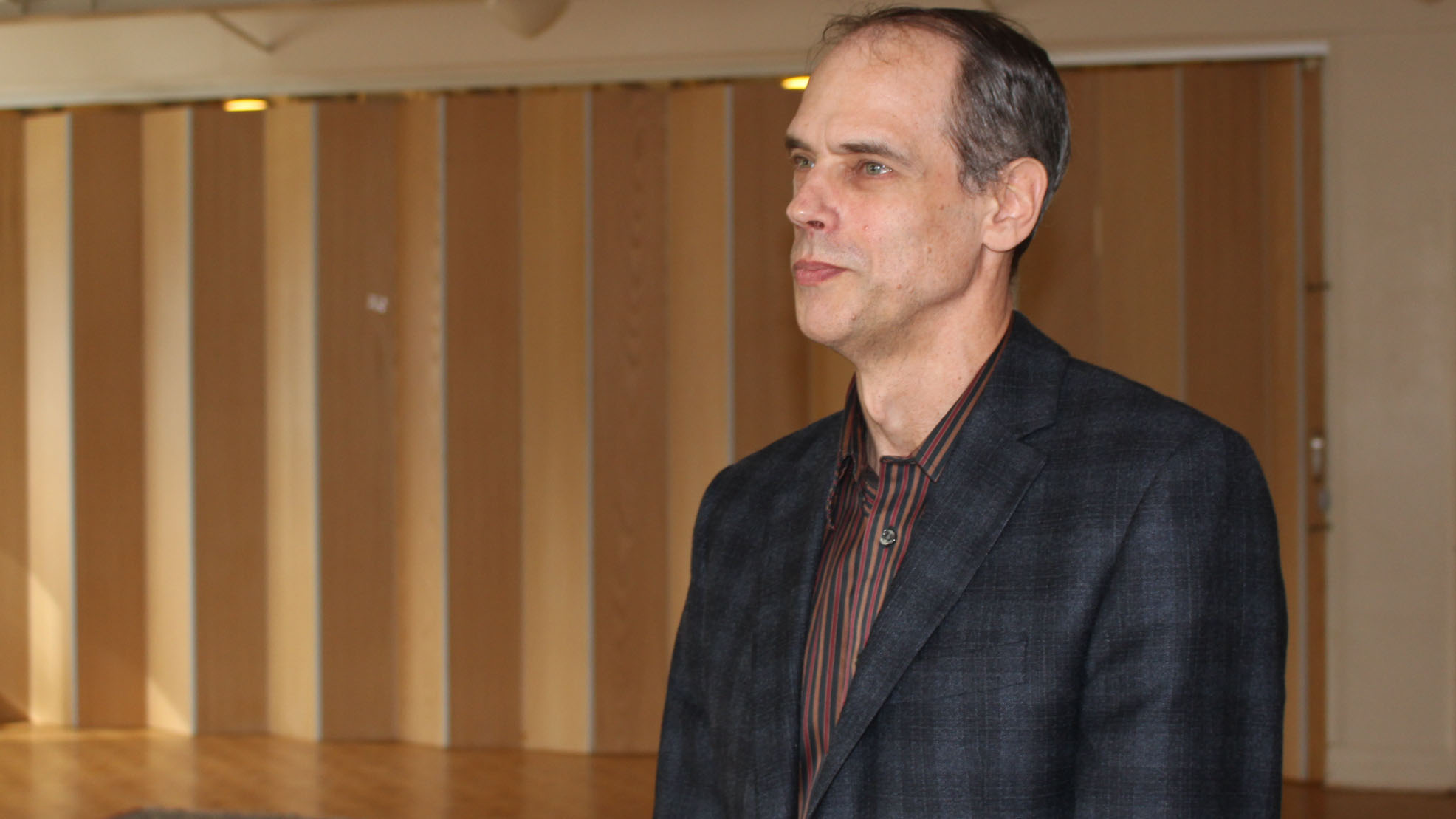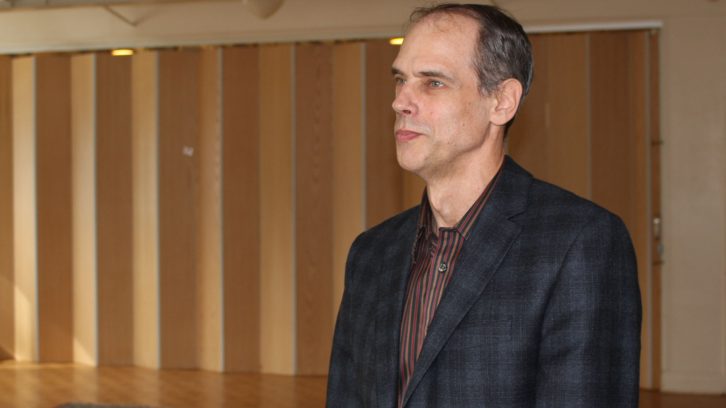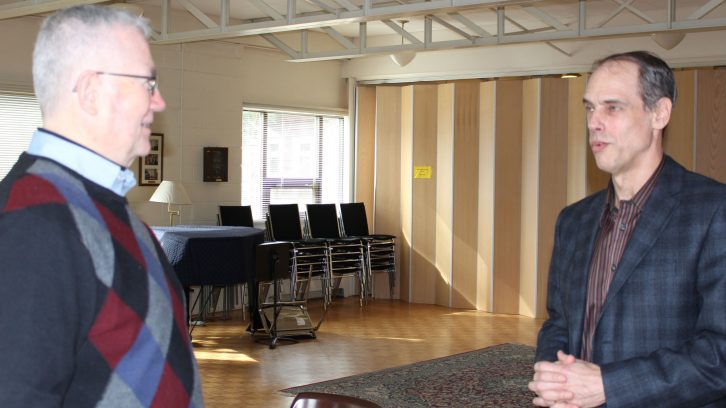Lent
Sometimes, tough conversations are the most meaningful
Dr. Stephen Workman talked about life and death

caption
Dr. Stephen Workman.
caption
Dr. Stephen Workman spoke in the Mary Holmes Room.For Dr. Stephen Workman, dealing with death is an everyday thing. He took the time to host a discussion about his experiences as a medical professional and someone who doesn’t take the subject lightly.
“Realizing your mortality can give your life meaning,” said Workman.
Workman spoke to a crowd of 18 at the Wonder Café on Sunday. His talk was at St. Andrew’s United Church on Robie Street. The talk was titled, A Walk With Death: the ultimate surrender.
St. Andrew’s Church is hosting discussions every Sunday during Lent, centred on themes of loss and changes in life.
During the session, he encouraged the attendees to have the tough talk about death with their families. Acknowledging death can be difficult, he said the toughest deaths are when a family has not discussed the possibility of a loved one dying.
“Often times it is the grateful people who have the best deaths,” said Workman in an interview.
Workman is the interim head for the division of general internal medicine at QEII Health Sciences Centre, a professor at Dalhousie University’s Faculty of Medicine and he specializes in end-of-life care.
Rev. Ian Fraser has hosted every other Wonder Café. Fraser is the Minister of congregational development at St. Andrew’s.
“Leading up to Easter is a time that people are encouraged to go deeper and a time of real self-reflection,” he said in an interview.
Fraser says the talks are, “dealing with how we can use times of change and loss and understand them as gifts; to delve in deeper rather than run away.”
“People really respond well and appreciate that they can do it in a context and listen to others and their insights and moving with others and through them.”
Frank Somerville has been attending St. Andrew’s Church regularly for 25 years. After the discussion, he spoke to The Signal saying it’s important to have these groups in the community.
“People who have already thought about it,” he said. “I don’t know how you get people to face it (death), who don’t want to face it.”

caption
Somerville and Workman at St. Andrew’s United Church.During the talk, Workman said that the death process in the hospital is less painful if a person has “realized (their) mortality,” before their time comes.
“7 billion dead, zero immortal,” said Workman.
He said its best when people accept the fact that they are going to die. Workman said doctors can sometimes, “do 1,000 things but none of them will work.”
When asked if faith played a role in a person or family’s acceptance in death, Workman said no, as “acceptance of death is idiosyncratic and nothing to do with faith.”
“If you are grateful for what you have in your life, then you have the capacity to put your death in perspective,” said Workman after the talk.
Dates and themes of other discussions
March 26 – Midlife crisis: menopause, manopause and more ways to fall apart
April 2 – Endings: when you just can’t make it work
April 9 – Wound as Possibility: what to do with the part of you that will never heal
